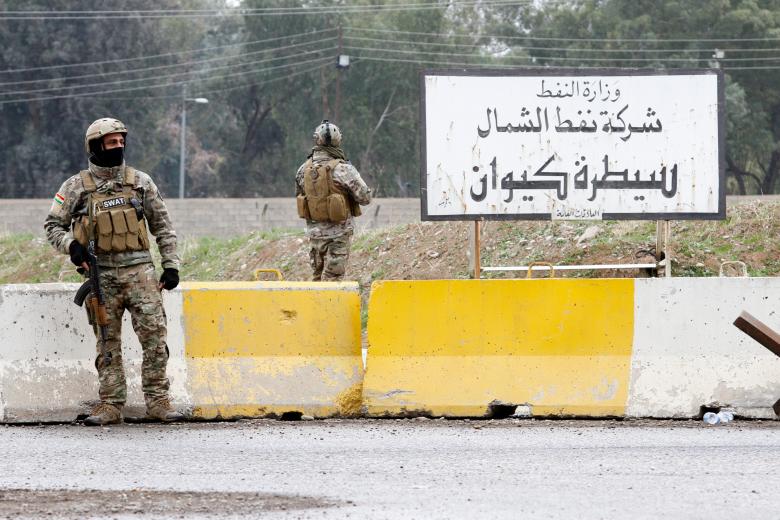2017-03-03 16:04:00
Iraq's Kurdistan is facing growing tensions between its government and the key opposition faction, which briefly disrupted oil flows from the semi-autonomous region this week and has threatened to take more action in coming days.
At the center of the dispute is the huge Kirkuk oil field in northern Iraq, which can pump around 150,000 barrels per day and has been exporting the output to world markets via Turkey.
The Kurdistan Regional Government, led by President Massoud Barzani and based in the capital of Erbil, began independent exports of oil from Kirkuk in 2014 but cut a deal with Baghdad last year to equally split the revenues.
The deal has been opposed by the Patriotic Union of Kurdistan (PUK), which is dominant in the area of Kirkuk and is the historic adversary of Barzani's Erbil-based ruling Kurdistan Democratic Party (KDP).
On Thursday, forces loyal to the PUK seized the Kirkuk facilities and briefly suspended oil flows, and threatened further action.
The developments have revived memories of a prolonged oil disruption in 2015-2016, when a quarter of Kurdish oil was reinjected back into the ground for months. That cost the region around $1 billion in lost revenues as the two Kurdish groups and the central government in Baghdad argued about revenue sharing.
A key PUK lawmaker said on Friday that the operation to seize the facilities was triggered by frustration among the local population with both the government in Baghdad and the Kurdish leadership in Erbil.
Aala Talabani, a lawmaker who heads the PUK block of MPs in the Iraqi parliament in Baghdad, said the local authorities were unhappy that neither Baghdad nor Erbil was prepared to build a local refinery "so that the people of the province can have a share of the petrodollars".
"What happened is a natural reaction (after) the federal government and the Kurdistan Regional Government resumed oil exports without implementing (this) condition," she told the Iraqi news website Mawazeen.
Oil officials and security sources said PUK forces were still in control of the pumping facility, located around 15 km (10 miles) west of the city of Kirkuk, although they had allowed oil flows to resume after halting them for several hours on Thursday.
"PUK wants the current Kirkuk oil sharing deal to be canceled within a week," said a source with knowledge of the Kirkuk operations. He said there was a risk that flows could be suspended again.
A PUK official said on Thursday that PUK forces would shut down oil flows again unless their demands were met within a week.
The oil field was run by Baghdad's North Oil Company until 2014 when the Kurdish peshmerga forces took control of the Kirkuk area after Islamic State militants overran around a third of Iraq and Baghdad's local forces disintegrated.
The current Kirkuk oil sharing deal between Erbil and Baghdad was agreed by Iraqi Prime Minister Haider al-Abadi and Kurdish Prime Minister Nechirvan Barzani.
Prior to the signing of the deal, local Kirkuk authorities and some executives from Iraq state oil firm SOMO were suggesting exporting oil from Kirkuk via Iran.


